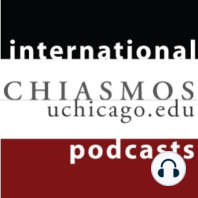35 min listen

“Enough: Why the World's Poorest Starve in an Age of Plenty”
“Enough: Why the World's Poorest Starve in an Age of Plenty”
ratings:
Length:
73 minutes
Released:
Mar 2, 2010
Format:
Podcast episode
Description
A talk by journalist and author Roger Thurow. For more than thirty years, humankind has known how to grow enough food to end chronic hunger worldwide. Yet while the "Green Revolution" succeeded in South America and Asia, it never got to Africa. Now, an impending global food crisis threatens to make things worse. In the west we think of famine as a natural disaster, brought about by drought; or as the legacy of brutal dictators. But in this powerful investigative narrative, Roger Thurow and Scott Kilman argue that in the past few decades, American, British, and European policies conspired to keep Africa hungry and unable to feed itself. As a new generation of activists work to keep famine from spreading, Enough sheds light on a humanitarian issue of utmost urgency. From the World Beyond the Headlines lecture series. Cosponsored by the Program on the Global Environment.
Released:
Mar 2, 2010
Format:
Podcast episode
Titles in the series (100)
John Mearsheimer: "The War in Iraq and America's Role in the World" by CHIASMOS: The University of Chicago International and Area Studies Multimedia Outreach Source [audio]